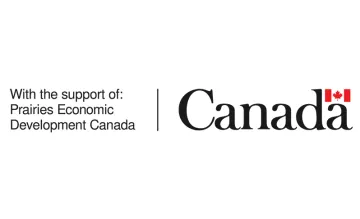by Claire Marrec, Bilingual Career Advisor at Prospect
Translated from French by AI. Read the original article in Le Franco here
In Alberta and across Canada, networking is deeply embedded in the culture. It involves maintaining or expanding your social and professional circles, which can be beneficial in social, personal, and professional contexts.
In this article, we will explore the importance of networking and why it is so significant in Canada compared to other Francophone countries. We will also discuss common mistakes to avoid and key techniques to keep in mind.
The Importance of Developing This Skill
The job market in Canada consists of what is known as the ‘hidden job market,’ representing about 70 to 80% of job opportunities not advertised online. These jobs are often first shared within the company’s internal network before being opened to a wider audience if the internal candidates do not meet the job requirements.
This means that building a strong network is essential for job seekers who do not want to miss out on (a lot of) potential job opportunities.
For newcomers, networking is particularly important as it helps them better understand cultural norms, labour market expectations, and the specifics of the profession they are interested in. By connecting with local experts, they can enhance their knowledge and better adapt to a new life context.
Networking can open doors to other networks, new resources, and even a genuine sense of belonging. As someone who works daily with newcomers in Calgary seeking employment, I’ve observed that those involved in a community experience quicker and better integration. Networking deeply fosters a sense of connection, which is essential when considering that moving or immigrating involves a significant upheaval of beliefs that many underestimate. Stepping out of the familiar social context, such as family, should be a priority for newcomers.
A Cultural Affair
Networking in Canada is a cultural and historical phenomenon. Here, personal and entrepreneurial initiatives are highly valued. Individuals are encouraged from a young age to be proactive.
Moreover, Canada has been heavily influenced by North American professional practices, where networking is seen as a cornerstone of career development. Unlike in some countries where career paths are more formalized and where degrees and certifications dominate, Canada places great importance on relational skills and the ability to create and maintain relationships. This is also reflected in the flexibility of employment contracts and more fluid professional mobility, which further underscores the importance of networking to access these opportunities.
Another key cultural aspect is the ease with which Canadians talk about themselves, a skill often associated with "personal branding." In Canada, it is not only acceptable but also encouraged to celebrate successes, whether on professional social networks or during events. Similarly, discussing failures is viewed as a sign of resilience and confidence, highly valued qualities. This culture of transparency and authenticity in professional interactions promotes sincere networking.
How to Network?
As a career advisor, my first piece of advice is to assess your current network. Networking involves creating new connections but also nurturing the network you already have. An opportunity might already be right before your eyes!
To start, on a sheet of paper or on your computer, place your name at the center of the page. Surrounding it, list people from your professional circle, hobbies, church, training programs, or even your children’s school.
Once you have an idea of your goal, such as finding a job or gaining a better understanding of the Canadian market, develop a plan to connect with your network or new cercles you want to open.
Finally, networking requires knowing the country's social rules, understanding how to initiate conversations, and genuinely caring about the person in front of you, not just your own interests. Research how to develop your emotional intelligence.
Where can you network for francophones and francophiles in Alberta?
There are numerous options for expanding your network, both in-person and online. Platforms like Meetup offer social or professional gatherings on various topics, such as information technology, entrepreneurship, or sports. The Francophone community in Calgary and Edmonton is also very active, with the annual JONA event organized by PIA in Calgary. This event, scheduled for September, is a perfect opportunity to connect with Calgary's Francophone community. Organizations like CRIEC offer mentorship programs with local experts in your field. Prospect Human Services is also organizing a networking event in French in Calgary this September. The website francophonie-calgary.ca provides a calendar of activities for the Francophone community. Many organizations can help you with networking as long as you’re willing to step out of your comfort zone (or family cercle)! Finally, don’t underestimate the power of social media. If done correctly, platforms like Facebook or LinkedIn are powerful tools for expanding your network.
Conclusion
Networking should be an integral part of your job search strategy. Whether you feel comfortable with it or not, consider seeking free support from an organization of your choice, in French or English, to enhance your career management skills. Don’t wait to develop your network; it’s an investment in your future, whether you are currently job hunting or not!





